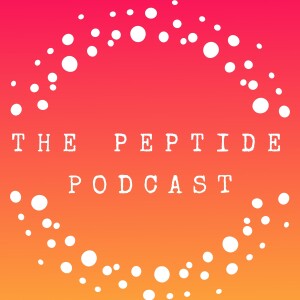
Potential of GLP-1 Agonists in Alzheimer’s Disease
 2024-08-15
2024-08-15
Alzheimer's disease is a type of dementia characterized by memory loss, cognitive decline, and a decline in the ability to perform daily tasks (e.g., planning and organizing). It can also affect mood and personality and impair judgment and language. Research has shown that Alzheimer’s results from amyloid plaques and neurofibrillary tangles in brain tissue, which affect communication between brain neurons.
The quest for effective treatments remains a high priority. Among the promising therapeutic avenues being investigated, GLP-1 (glucagon-like peptide-1) agonists, traditionally used for managing type 2 diabetes and weight, have garnered significant attention for their potential benefits in Alzheimer's disease. In this podcast, we’ll discuss the potential use of GLP-1 agonists in Alzheimer’s disease and how they work.
Understanding GLP-1 AgonistsGLP-1 agonists are a class of medications primarily used to enhance insulin secretion and improve glycemic control in patients with type 2 diabetes and obesity. They mimic the effects of the natural hormone GLP-1, which is involved in glucose metabolism and appetite regulation. Besides their glucose-lowering properties, GLP-1 agonists have been observed to have various effects beyond glucose control, including neuroprotective properties.
Mechanisms of Action of GLP-1 Agonists in Alzheimer's Disease-
Neuroprotection: GLP-1 agonists have been shown to exert neuroprotective effects in preclinical models of Alzheimer's disease. They may help protect neurons from damage and death, which is crucial in a disease characterized by widespread neuronal loss. The mechanisms through which GLP-1 agonists provide neuroprotection include reducing oxidative stress, inflammation, and apoptosis (cell death).
-
Amyloid Beta and Tau Pathology: Alzheimer's disease is marked by the accumulation of amyloid beta plaques and tau tangles in the brain. Some studies suggest that GLP-1 agonists might influence the pathology associated with Alzheimer's disease by reducing amyloid beta deposition and tau phosphorylation. While these effects have been observed in animal models, translating these findings to human patients requires further research.
-
Cognitive Function: Clinical trials and studies have explored the impact of GLP-1 agonists on cognitive function in Alzheimer's patients. Preliminary results are promising, with some research indicating that GLP-1 agonists may improve cognitive function and slow cognitive decline. This effect is thought to be linked to the drugs’ ability to enhance neurogenesis (the formation of new neurons) and synaptic plasticity (the ability of synapses to strengthen or weaken over time).
-
Metabolic Regulation: Alzheimer’s disease has been associated with metabolic dysfunctions, including insulin resistance and impaired glucose metabolism. GLP-1 agonists, by improving insulin sensitivity and glucose regulation. This might address some of these metabolic abnormalities, potentially offering an additional benefit in managing Alzheimer’s disease.
Research into the use of GLP-1 agonists for Alzheimer’s disease is still in its infancy, and larger, well-designed clinical trials are needed to confirm their efficacy and safety in this new context.
Moreover, while GLP-1 agonists show promise, they are not without side effects, including stomach-related side effects such as nausea, diarrhea, and constipation. As such, their use in Alzheimer’s disease will require careful consideration of the risk-benefit profile for individual patients.
Thanks again for listening to The Peptide Podcast. We love having you as part of our community. If you love this podcast, please share it with your friends and family on social media, and have a happy, healthy week!
We're huge advocates of elevating your health game with nutrition, supplements, and vitamins. Whether it's a daily boost or targeted support, we trust and use Momentous products to supercharge our wellness journey.
Momentous only uses the highest-quality ingredients, and every single product is rigorously tested by independent third parties to ensure their products deliver on their promise to bring you the best supplements on the market.
More Episodes
 2023-06-01
2023-06-01
 2023-05-25
2023-05-25
 2023-05-18
2023-05-18
 2023-05-04
2023-05-04
 2023-04-27
2023-04-27
 2023-04-13
2023-04-13
 2023-04-06
2023-04-06
 2023-03-30
2023-03-30
 2023-03-23
2023-03-23
 2023-03-16
2023-03-16
 2023-03-09
2023-03-09
 2023-03-02
2023-03-02
 2023-02-23
2023-02-23
 2023-02-09
2023-02-09
Create your
podcast in
minutes
- Full-featured podcast site
- Unlimited storage and bandwidth
- Comprehensive podcast stats
- Distribute to Apple Podcasts, Spotify, and more
- Make money with your podcast
It is Free
- Privacy Policy
- Cookie Policy
- Terms of Use
- Consent Preferences
- Copyright © 2015-2024 Podbean.com





